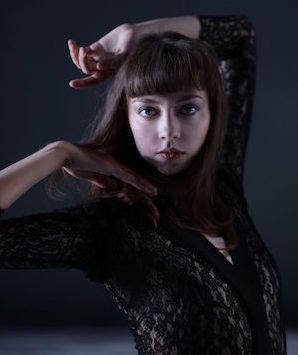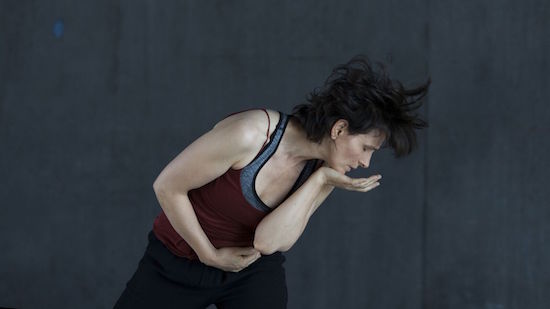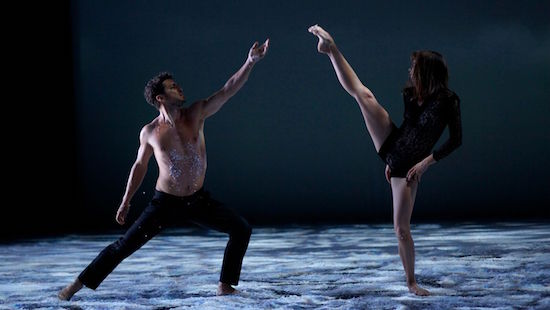She’s Got the Moves
Co-directed by Valérie Müller and renowned dancer/choreographer Angelin Preljocaj (who are married), Polina is the story of a budding Russian ballerina who forsakes a coveted job with the Bolshoi Ballet to pursue the freedom of contemporary dance. Based on the graphic novel by Bastien Vivès, Polina stars soulful young Russian dancer and first-time actress Anastasia Shevtsova as a girl from a humble background who is chosen to train for a career in ballet. Inspired by contemporary dance, she moves first to France, then Belgium—enduring a series of physical, artistic and romantic setbacks, before finding her true passion in creating her own dances. We can almost feel her physical and psychological release when she finally experiences that fulfillment.
Early in the film we see a serious, young Polina (Veronika Zhovnytska) struggling in ballet class under the glowering eye of the demanding Bojinski (Aleksey Guskov), a classic cinematic ballet master. The stifling mood of these vignettes are juxtaposed with scenes of the girl joyfully losing herself in wild improvised dance while walking home from the academy. Later the teenage Polina endures grueling rehearsals under Bojinsky, who harangues her for her inability to express feeling behind the movement, a theme that runs throughout the film. Somehow, though, she perseveres and manages to ace an audition for the Bolshoi in a terrific scene that’s shot from overhead. (Another enthralling scene follows Polina’s expressive feet as her pointe shoes jab and pound the wooden floor.) Her financially strapped parents are depending on her Bolshoi salary, especially since her father is in debt to some bad guys, but Polina has other ideas. After she is moved to tears by a contemporary dance performance, she breaks her mother’s heart by moving to France with boyfriend and fellow dance student Adrien (Niels Schneider, looking very much like a dancer). Shevtsova’s face is impassive as she packs and her mother weeps; as in other scenes, we wonder what she’s feeling.
In Provence, Polina and Adrien work with Liria, an earthy contemporary dancer/choreographer played by Juliette Binoche, who nicely demonstrates her own solid dance background. The filmmakers contrast the energy of this ferociously kinetic new choreography with the stilted (in comparison) precision of previous ballet scenes. Liria too talks about the necessity of emotion in dance, as she seems to be channeling the sensibility of Preljocaj himself. The pulsating electronic soundtrack by 79D provides a bracingly effective counterpart to several dance scenes.
When tensions arise between Polina and Adrien and his eye begins to wander, she hightails it to Antwerp, which has its own thriving contemporary dance scene. Here she faces tough auditions and financial travails, sleeping in a laundromat at one point and eventually finding work as a bartender at a nightclub. She also discovers Karl, an improvisational dancer (played with great charisma by Paris Opera Ballet star Jérémie Bélingard). When Polina finally lets loose with her own improvisational dance, it’s tremendously cathartic. Here she finally becomes her own artist, someone who is clearly only fulfilled when she’s moving to her own rhythm.
Anyone with an interest in dance will be moved and mesmerized by Preljocaj’s choreography and the beautifully filmed dance footage, which is not edited down for commercial consumption. The movie is light on dialogue, which is appropriate for a work primarily about movement, though we might wish for more exposition at some points. Scenes involving Polina’s family and their travails seem especially perfunctory, used mainly to flesh out her story. Whatever its flaws, though, Polina is a strong and affecting portrayal of an artist finding herself and her way in the world.
Polina opens in theaters on Friday.
—Marina Zogbi




